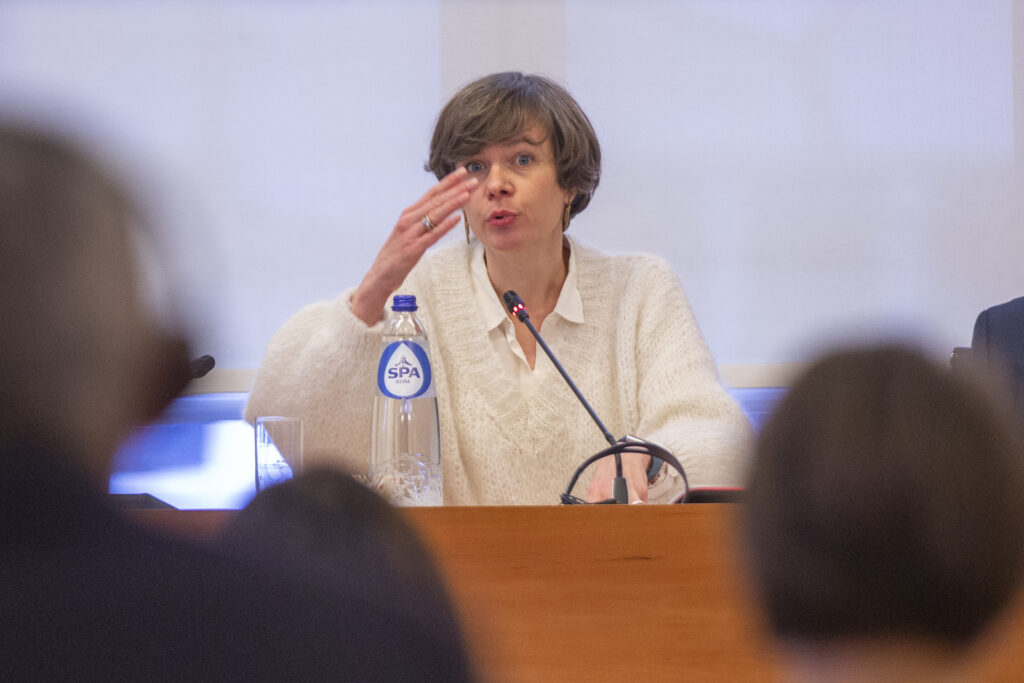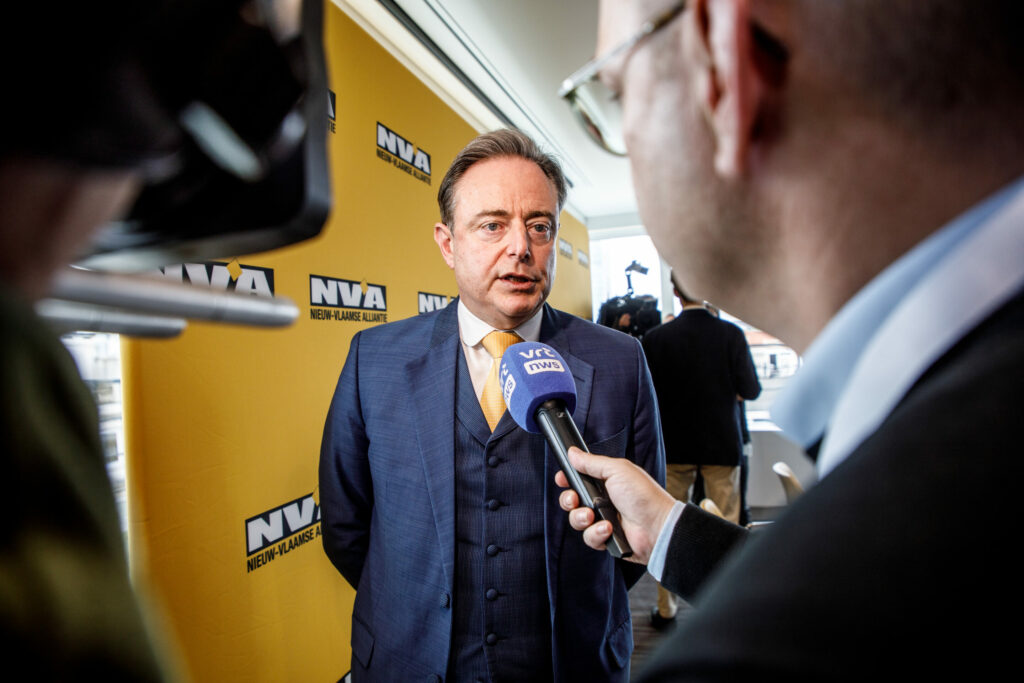While the Flemish rightwing N-VA will not announce their election programme until next Sunday, the party did present its plans for the Brussels-Capital Region, where they are doing well in the polls.
If the polls materialise into votes during the regional election on 9 June, the Flemish separatist party could join the Brussels Regional Government "after more than 30 years of [Francophone socialist] PS policy," said N-VA's group leader in the Brussels Parliament Cieltje Van Achter.
"We realise that we have to be incontournable," the N-VA text reads, notably opting to use the French instead of the Dutch word to say they want to be unavoidable or inescapable.
The party's major campaigning point in Brussels is security, following the series of drug-related shootings across the Capital Region in recent months. "Due to numerous shooting incidents with deaths and injuries, certain working-class neighbourhoods have turned into no-go zones," they said. "This has everything to do with drug violence in the city."
One policy
To curb it, N-VA wants to launch a regional drug hotline where citizens could anonymously report the location of dealer gangs, a cannabis plantation or a drug lab. Additionally, drug users should be banned from Brussels Metro stations, they stressed, arguing that "a metro station is not a homeless shelter."
N-VA also want to abolish of the 19 municipalities of Brussels and replace them with districts. The most important measure, however, is a unified police force for the entire Capital Region, which would all fall under the same police zone, as is already the case in Antwerp and Paris. The Public Centres for Social Welfare should also be merged.
"One city region, one policy," they said. "One mobility policy, one housing policy, one cleanliness policy, one security policy, one fiscal policy, one social policy and one spatial planning policy."

N-VA's Cieltje Van Achter. Credit: Belga/Nicolas Maeterlinck
For N-VA leader Bart De Wever, that is the most efficient way, he said during a press conference on Monday afternoon. "Six police zones in one city, that is just crazy. If a helicopter flies over Brussels, it has to report to six commands. Do you know how long it takes such a helicopter to cross a police zone? Three seconds."
"If you were to do an input-output analysis of Brussels, the result would be just terrible," he continued. "The people of Brussels are overprivileged – there is a federal metro brigade, and the deployment of the federal police per capita is twice as high as in Antwerp. And yet there is so little output."
"If you do not start by merging the municipalities into one city council with 70 councillors and one mayor or Minister-President – call it what you will – you will never get out of this mess," De Wever said. "Brussels has sunk into a financial quagmire, while being overspent per capita."
'Inspired by Vooruit'
Therefore, the party wants to make the Region's budget a priority. However, it immediately admitted that some of the keys for this are held by the Federal Government: to get more Brussels residents into work, unemployment (a federal competence) must be reduced over time.
This would already provide more revenue, but spending must also be cut, they stressed. And while N-VA defend the further expansion of Metro Line 3, they also stressed that a "spending threshold" should be installed. "No more handout politics."
According to the party, the middle class is leaving the city and the companies are turning their backs on Brussels due to "socialist mismanagement."
In response, Brussels State Secretary for Urbanism and Heritage and one of the faces of the capital's Vooruit Ans Persoons faction posted a checklist of all N-VA's policy points on social media, saying that they have all been part of Vooruit's programme as well.
"Do you mean 'I was inspired by the programme of Vooruit.brussels?" she asked, tagging N-VA Brussels' group leader Cieltje Van Achter.
Van Achter, in turn, stated that these issues had "unfortunately" been the issues that N-VA has been "constructively" criticising in the opposition for five years. "Too bad Vooruit.brussels has realised so little in government."
Related News
- Belgian elections for dummies
- 'Child of divorce': If Belgium splits, what happens to Brussels?
- Belgian elections guide: What Belgium's parties stand for
Despite the party's heavy criticism of Brussels, N-VA's official party standpoint is that, even with Belgium as a confederation, it has no intention of letting go of Brussels (even if some factions would be willing to sacrifice Brussels as the price for Flemish autonomy).
Therefore, the use of Dutch must be strengthened in Brussels' administrations, and the major investment in Dutch-language education in Brussels must also be continued. In terms of mobility, the party takes the side of the vulnerable road user and proposes a network of segregated cycle lanes.

